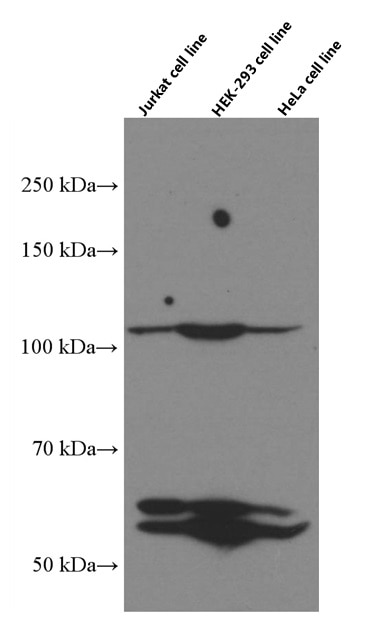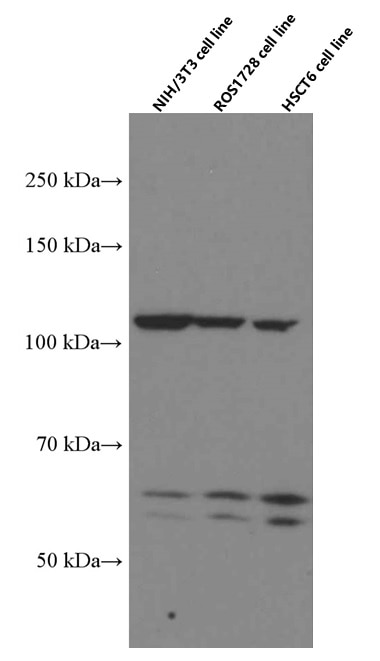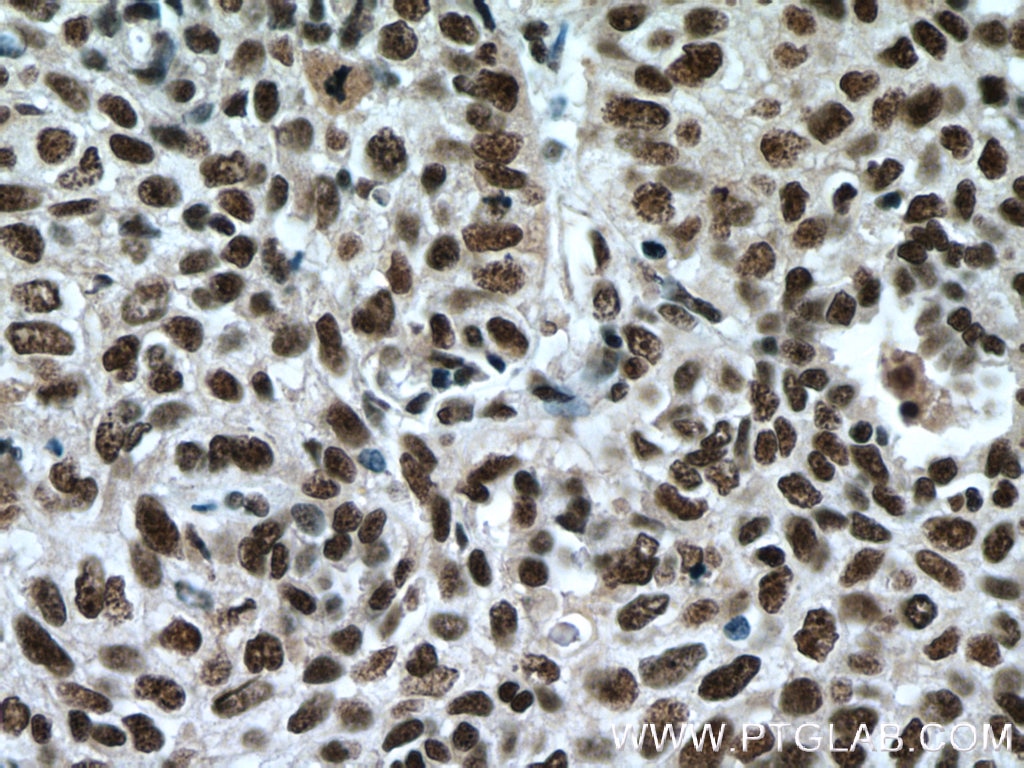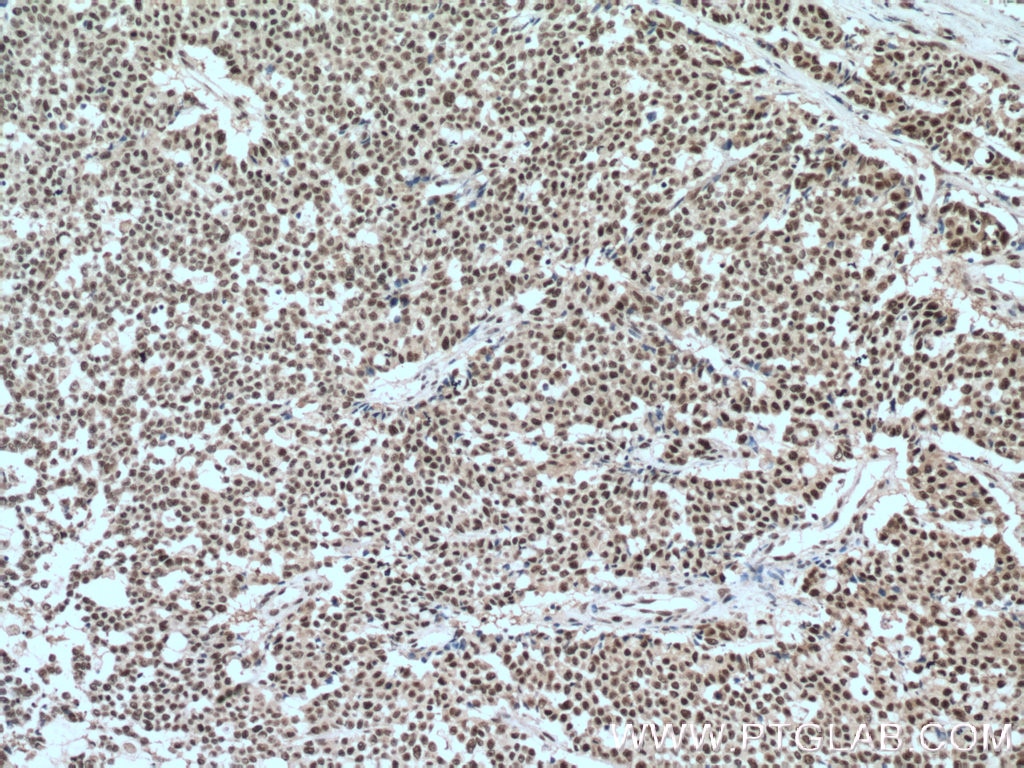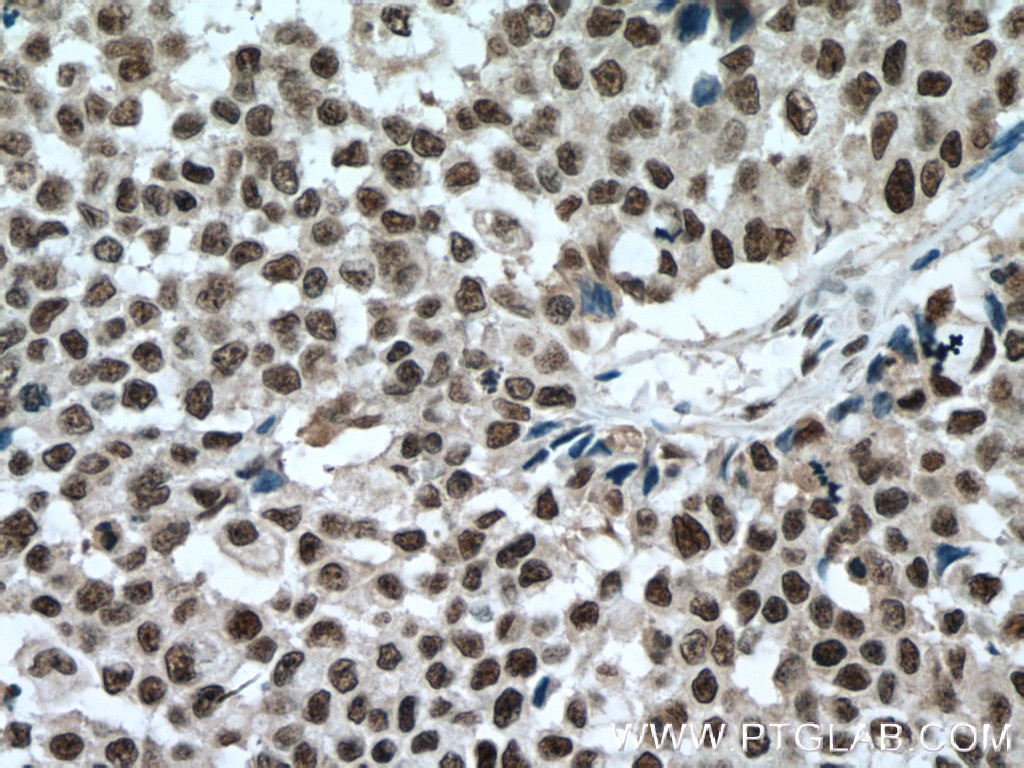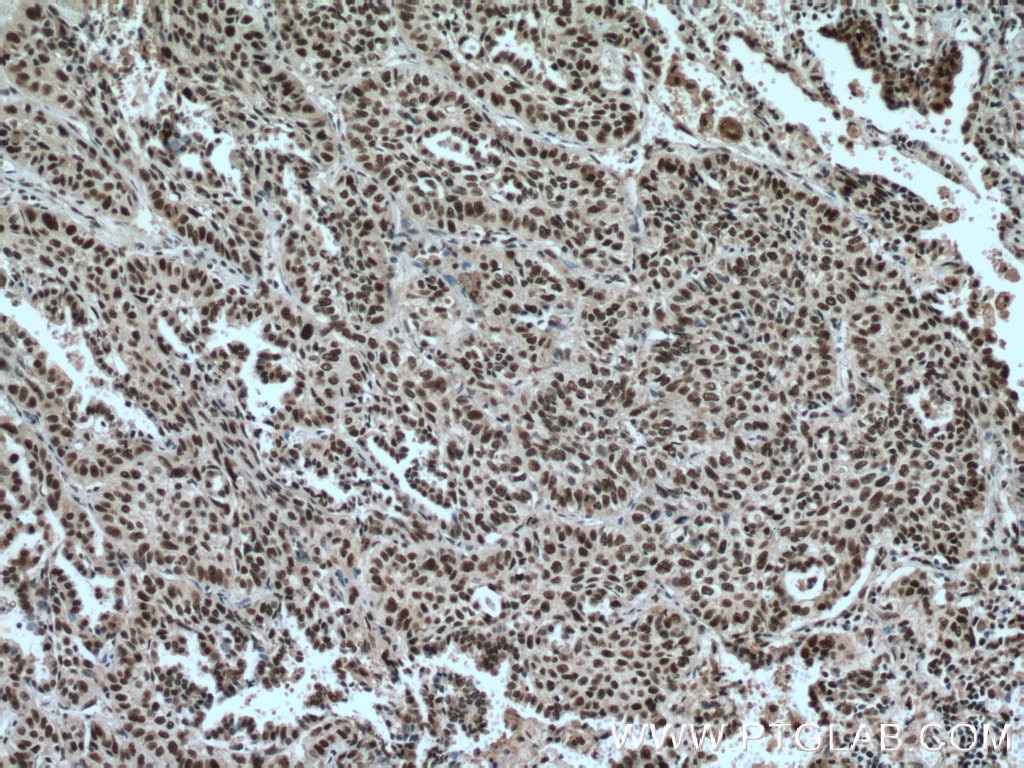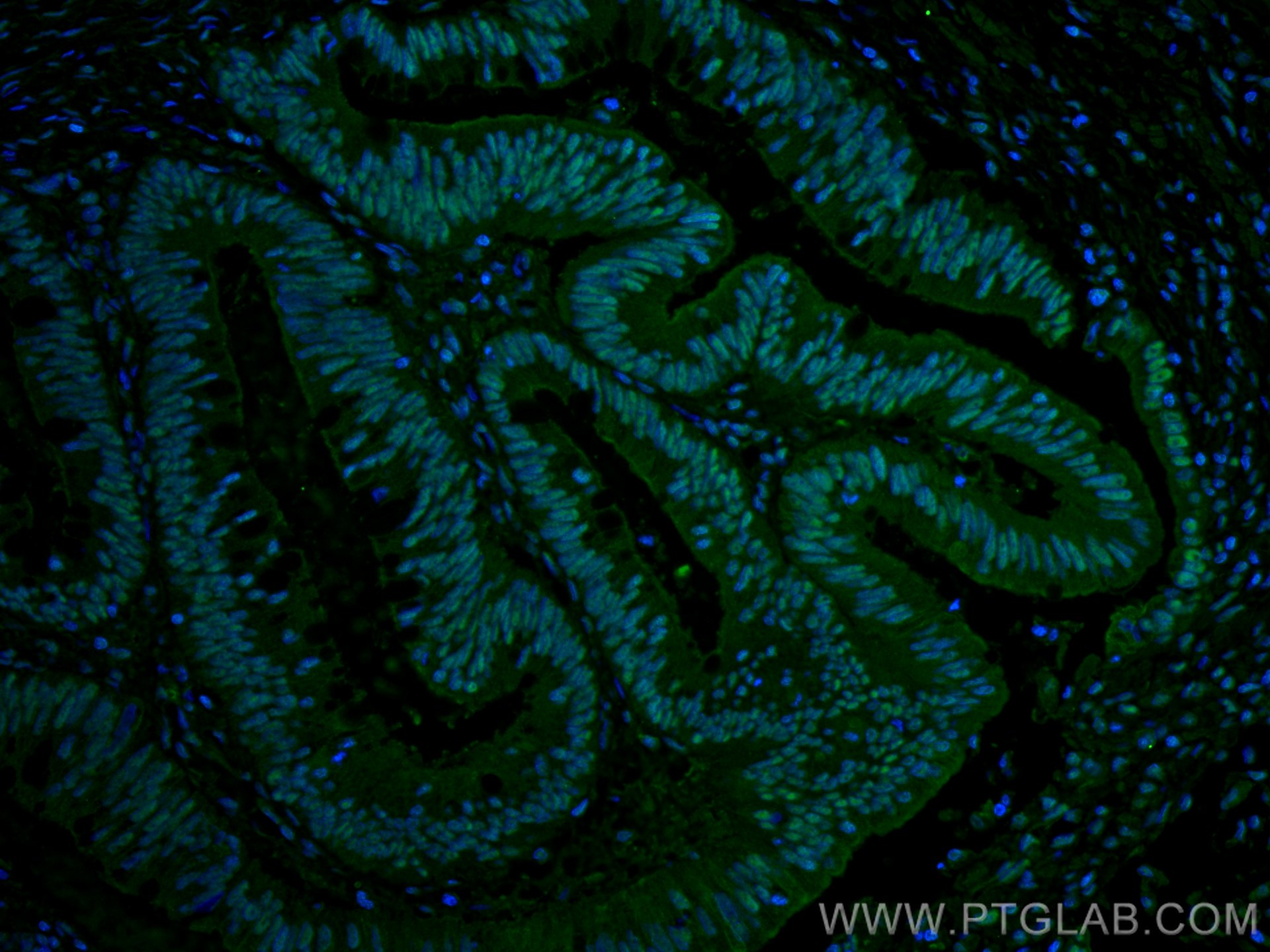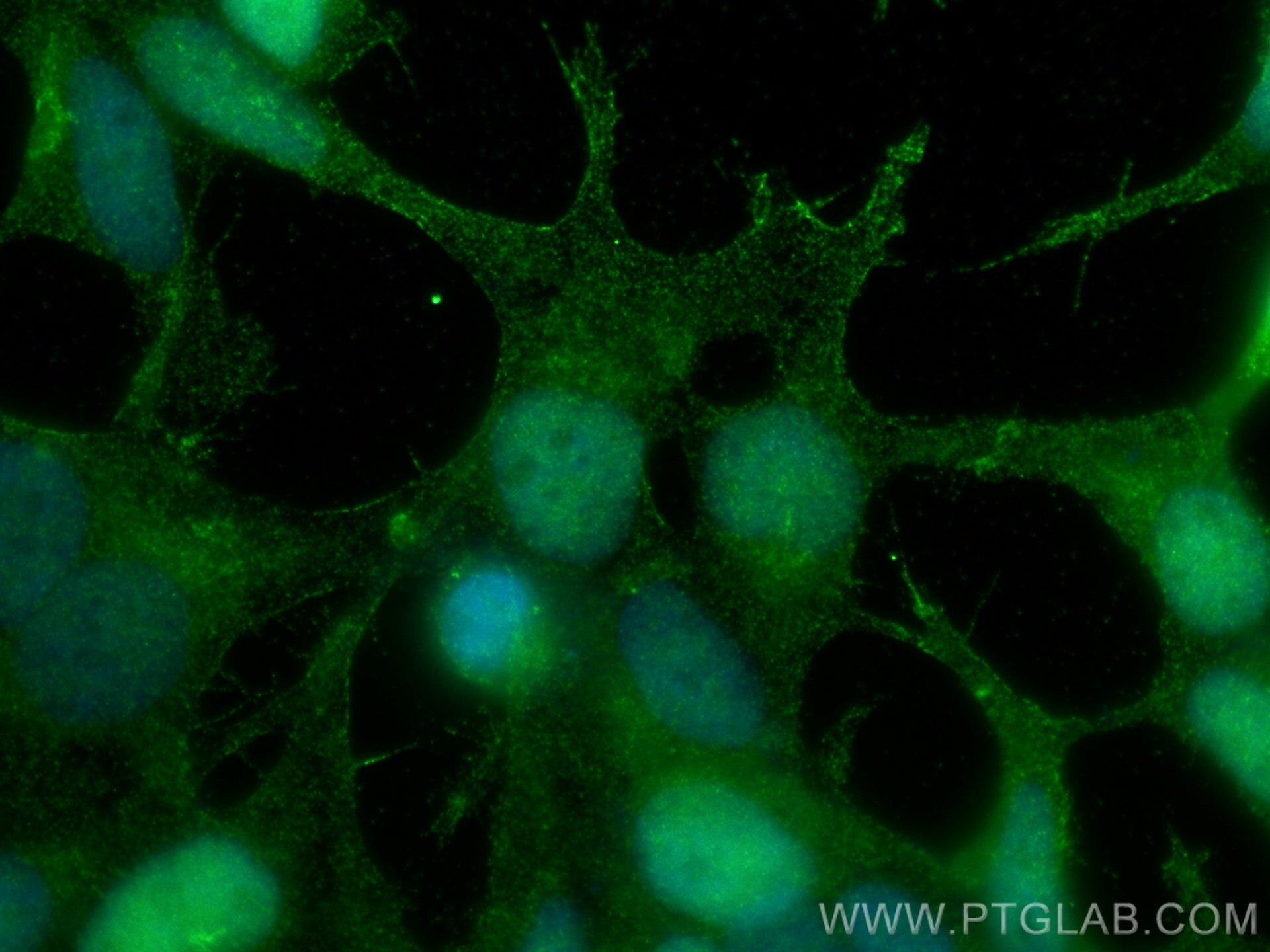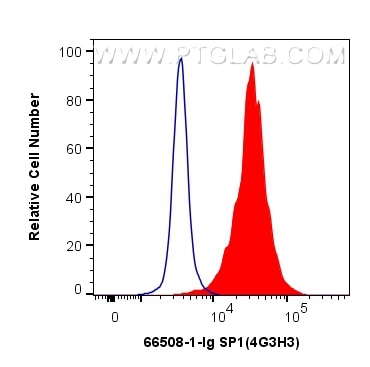SP1 Monoklonaler Antikörper
SP1 Monoklonal Antikörper für WB, IHC, IF/ICC, IF-P, FC (Intra), ELISA
Wirt / Isotyp
Maus / IgG1
Getestete Reaktivität
human, Maus, Ratte
Anwendung
WB, IHC, IF/ICC, IF-P, FC (Intra), ELISA
Konjugation
Unkonjugiert
CloneNo.
4G3H3
Kat-Nr. : 66508-1-Ig
Synonyme
Geprüfte Anwendungen
| Erfolgreiche Detektion in WB | Jurkat-Zellen, HEK-293-Zellen, HeLa-Zellen, NIH/3T3-Zellen |
| Erfolgreiche Detektion in IHC | humanes Lungenkarzinomgewebe, humanes Kolonkarzinomgewebe Hinweis: Antigendemaskierung mit TE-Puffer pH 9,0 empfohlen. (*) Wahlweise kann die Antigendemaskierung auch mit Citratpuffer pH 6,0 erfolgen. |
| Erfolgreiche Detektion in IF-P | humanes Kolonkarzinomgewebe |
| Erfolgreiche Detektion in IF/ICC | HEK-293-Zellen |
| Erfolgreiche Detektion in FC (Intra) | HEK-293-Zellen |
Empfohlene Verdünnung
| Anwendung | Verdünnung |
|---|---|
| Western Blot (WB) | WB : 1:1000-1:6000 |
| Immunhistochemie (IHC) | IHC : 1:175-1:700 |
| Immunfluoreszenz (IF)-P | IF-P : 1:50-1:500 |
| Immunfluoreszenz (IF)/ICC | IF/ICC : 1:400-1:1600 |
| Durchflusszytometrie (FC) (INTRA) | FC (INTRA) : 0.40 ug per 10^6 cells in a 100 µl suspension |
| It is recommended that this reagent should be titrated in each testing system to obtain optimal results. | |
| Sample-dependent, check data in validation data gallery | |
Veröffentlichte Anwendungen
| WB | See 4 publications below |
| IHC | See 1 publications below |
| IF | See 1 publications below |
Produktinformation
66508-1-Ig bindet in WB, IHC, IF/ICC, IF-P, FC (Intra), ELISA SP1 und zeigt Reaktivität mit human, Maus, Ratten
| Getestete Reaktivität | human, Maus, Ratte |
| In Publikationen genannte Reaktivität | human, Maus, Ratte |
| Wirt / Isotyp | Maus / IgG1 |
| Klonalität | Monoklonal |
| Typ | Antikörper |
| Immunogen | SP1 fusion protein Ag16720 |
| Vollständiger Name | Sp1 transcription factor |
| Berechnetes Molekulargewicht | 785 aa, 81 kDa |
| Beobachtetes Molekulargewicht | 95-105 kDa, 60-65 kDa |
| GenBank-Zugangsnummer | BC062539 |
| Gene symbol | SP1 |
| Gene ID (NCBI) | 6667 |
| Konjugation | Unkonjugiert |
| Form | Liquid |
| Reinigungsmethode | Protein-G-Reinigung |
| Lagerungspuffer | PBS with 0.02% sodium azide and 50% glycerol |
| Lagerungsbedingungen | Bei -20°C lagern. Nach dem Versand ein Jahr lang stabil Aliquotieren ist bei -20oC Lagerung nicht notwendig. 20ul Größen enthalten 0,1% BSA. |
Hintergrundinformationen
The transcription factor Sp1 is a C2H2 zinc-finger protein that is involved in the regulation of a wide variety of genes, including housekeeping genes and tumor-developing genes. It is associated with tumor development, growth, and metastasis [PMID: 16209919]. It regulates the expression of a large number of genes involved in a variety of processes such as cell growth, apoptosis, differentiation and immune responses. Besides, it has a role in modulating the cellular response to DNA damage, recruiting SMARCA4/BRG1 on the c-FOS promoter, regulation of FE65 gene expression [PMID:11371615,16332679]. SP1 has some isoforms with MW ~95-106 kDa and ~60 kDa [PMID:17462816].
Protokolle
| PRODUKTSPEZIFISCHE PROTOKOLLE | |
|---|---|
| WB protocol for SP1 antibody 66508-1-Ig | Protokoll herunterladen |
| IHC protocol for SP1 antibody 66508-1-Ig | Protokoll herunterladenl |
| IF protocol for SP1 antibody 66508-1-Ig | Protokoll herunterladen |
| FC protocol for SP1 antibody 66508-1-Ig | Download protocol |
| STANDARD-PROTOKOLLE | |
|---|---|
| Klicken Sie hier, um unsere Standardprotokolle anzuzeigen |
Publikationen
| Species | Application | Title |
|---|---|---|
Br J Pharmacol Sarco/endoplasmic reticulum Ca 2+ -ATPase 2b mediates oxidation-induced endoplasmic reticulum stress to regulate neuropathic pain | ||
Evid Based Complement Alternat Med Guifu Dihuang Pills Ameliorated Mucus Hypersecretion by Suppressing Muc5ac Expression and Inactivating the ERK-SP1 Pathway in Lipopolysaccharide/Cigarette Smoke-Induced Mice | ||
Endocrinology AURKA enhances the glycolysis and development of ovarian endometriosis through ERβ | ||
Acta Biochim Biophys Sin (Shanghai) Propofol protects against high glucose-mediated endothelial injury via inhibition of COX2 and iNOS expressions | ||
Genomics STRIP2 is regulated by the transcription factor Sp1 and promotes lung adenocarcinoma progression via activating the PI3K/AKT/mTOR/MYC signaling pathway | ||
EMBO Rep Histone modifications and Sp1 promote GPR160 expression in bone cancer pain within rodent models |
